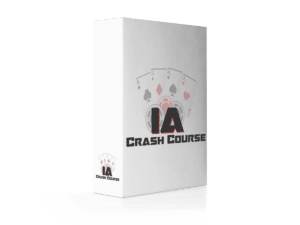There are many different adjuster jobs and roles in the insurance industry.
The world of claims adjusting is a world of many opportunities. When I first got started I had no idea how many different types of adjusters there actually were. I was unaware of the different roles and work someone with an adjuster license could actually do.
In this article, I’m going to be giving an overview of the different insurance adjuster jobs and roles that a licensed independent insurance adjuster can do.
To begin, we need to review what an independent adjuster is and how it is different from other types of adjusters.
What Is an Independent Adjuster?
Being an independent adjuster means you can work for more than one insurance company or independent adjusting firm and that you are a business owner, not an employee.
There are 3 different ways you can find and be employed for insurance adjuster jobs. The biggest difference between each of these is who is paying you and the type of employment you are paid for.
The 3 different types of adjuster jobs are,
- Company or Staff Adjuster
- Independent Insurance Adjuster
- Public Adjuster
Let’s quickly review the differences between these different types of adjuster employments.
Company or Staff Adjuster
Having an adjuster job where you are a company or staff adjuster is where you work as an insurance company. You are a w2 salaried employee and you are paid by the insurance company.
You only work for that one insurance company. On all of your file you are the representative of the insurance company.
Independent Insurance Adjuster
An independent adjuster is a business owner and can work for multiple insurance companies and independent adjusting firms.
When working as an independent you are typically working as a 1099 contractor or filling a w2 position as a temporary worker. Independent adjusters are typically working for an independent adjusting or staffing firm, but you can also work directly for the insurance carrier.
Independent adjuster pay is different than the way an employee is paid. You can be contracted and paid on a per claim, hourly, an adjuster fee schedule, or on a per day basis.
Typically, you represent the insurance company on the claims that you handle.
Public Adjuster
Working a public adjuster job is similar to an independent adjuster job, you work for many different people, but the major difference is instead of representing the insurance company you are representing the public, or individuals or companies that have a claim against the insurance company.
It is very different to go from being a public adjuster to becoming an independent. Often the insurance companies do not want to be represented by an adjuster that worked as a public adjuster in the past.
It can be done, but the adjuster licensing process is different and all public adjuster licenses must be resigned and new independent adjuster licenses obtained before it is even a possibility.
One of the best ways to understand the difference between a public adjuster and independent adjuster is like a defendant and prosecutor in a courtroom. One lawyer represents the defendant and one represents the plaintiff.
This same dichotomy exists within insurance claims.
For the rest of this article, I’ll be discussing different adjuster jobs and roles for independent adjusters specifically, but these types of roles also exist for staff and public adjusters.
Different Types of Field Adjuster Jobs for Independent Adjusters
The independent insurance adjuster jobs that most imagine when they hear about our industry are called field adjusters.
These are the insurance adjuster jobs that require you to climb on a roof to inspect a house, to travel to a tow yard to inspect a damaged vehicle, or to inspect a slip and fall incident. These insurance claims adjuster roles require that you go into the field to investigate and determine damages.
This is how I got started as an independent adjuster. I was first an independent auto damage appraiser and then got my adjusters license and became an independent insurance adjuster.

Sometimes field adjusters are called material damage adjusters when assessing damages of property whether it is a vehicle, fence, or a person.
Here are some of the most common types of field adjuster jobs you will see available,
- Auto Damage Appraiser (license not required in most states)
- Auto Damage Adjuster
- Catastrophic Adjuster (auto)
- Specialty Auto Adjuster
- Ladder Assist (license not required)
- Property Adjuster
- Catastrophic Property Adjuster
- Commercial Property Adjuster
- Crop Adjuster
- Marine Adjuster
Typically, a new field adjuster will start inspecting standard auto or residential property claims. As an adjuster gains experience they work towards more complicated types of inspections. The more advanced roles are commercial, specialty, or bodily injury.
Different Types of Desk Adjuster Jobs Independent Adjusters
Working a desk adjuster job is as it sounds. It means that you are handling claims and investigations from your desk.
Your desk could be located in a central office in a cubicle or remotely working from your home. Technically, any adjuster role could also be a desk job if someone else was completing the field inspection portion of the claim.
As an independent adjuster the most common types of desk adjuster jobs you’ll find are,
- Auto Claims Adjuster
- Total Loss Adjuster
- Liability Adjuster
- Bodily Injury Adjuster
- Property Desk Adjuster
- Workers Compensation Adjuster
There are many supporting roles that new adjusters often fulfill that are not claims handler or adjuster positions that are also desk jobs.
What Are the Highest Paying Insurance Adjuster Jobs for Independents?
Some of the highest paying adjuster roles for independents are,
- Commercial Property Adjuster
- Bodily Injury Adjuster
- Heavy Equipment Adjuster (commercial auto or inland marine)
- Marine Adjuster
Like any other career most adjuster jobs you’ll be able to get when you are first starting out are not the best paying ones.
Once you establish a good reputation on the entry level roles, you can add to your skillset and get experience or certifications for the types of claims you want to be able to handle.
If you want to become a commercial property adjuster you’ll have to first learn how to handle residential claims.
Same on the auto side of the industry, if you want to handle heavy equipment or specialty auto claims you’ll need to first get experience in standard auto claims.
Are Independent Insurance Adjuster In-Demand?
Yes, each independent adjusting firms I speak to state that there are not enough well trained independent adjusters to support the demand our industry has for them.
Getting adjuster training and adjuster certifications in the type of claim you want to handle is the starting point for any new adjuster.
 Each independent adjusting firm needs someone who can accurately and professionally handle a claim. You need to be the solution to that problem and you will rarely be in need of work. Good adjusters are always in-demand.
Each independent adjusting firm needs someone who can accurately and professionally handle a claim. You need to be the solution to that problem and you will rarely be in need of work. Good adjusters are always in-demand.
Is Being an Independent Insurance Adjuster Hard or Stressful?
Yes, in all types of adjuster jobs being an independent insurance adjuster can be stressful. You are dealing with people who have experienced a loss of some kind.
They’ve been injured, had their car windshield broken, water flood their home, something has happened that has caused them to file a claim with the insurance company.
It is a challenging time for them in their life and as a result a challenging time for you as an adjuster.
Stress, by definition, is your body’s reaction to a challenge or demand.
In the Burned Out Adjuster’s Playbook, I point out that,
“Stress in short bursts is valuable and healthy. By definition “eustress” is a psychological benefit to us. It is what gets us to complete a project on time, make two extra phone calls to meet quota, or what helps us turn off the TV and find a job.
The problem comes in when we face too many challenges and too many demands. When we live in a state of stress rather than using stress as a catalyst for our best work.”
– Chris Stanley in Burned Out Adjuster’s Playbook
So yes, being an independent adjuster can be challenging and stressful and our response to that as an adjuster either causes us to become overwhelmed or to produce our best work.
The choice is yours.
What Qualities Make a Good Claims Adjuster?
As a claims professional it is important to have Big Three skills on every interaction you have with a person,
- We need to LISTEN
- We need to CARE
- We need to EMPATHIZE

In his book, the Successful Adjuster’s Playbook, John Bachmann says,
“Remember there is only one thing an insurance company sells. A promise. A promise that the claims team will be there when the customer needs them the most. When an awful situation involving what they value most occurs, the Claims team will be there to help them pick up the pieces and start to put them back together.”
That is why being able to listen, care, and empathize as an adjuster is so important. We are the human element of the insurance industry.
Need Help Getting an Independent Insurance Adjuster Job?
Getting started and landing your first independent insurance adjuster job is the hardest part about becoming an independent adjuster,
Many companies have experience requirements of 2-5 years on job postings and won’t even consider you for many of the available positions and opportunities.
That is why at IA Path we created mentorship programs that get those 2-5 year experience requirements waived with 40+ independent adjusting Firms.
We train you, certify you, introduce you, and help you with those claims for one full year.
If you are interested in enrolling in field or desk claims you can enroll in our Auto Damage Certification or Desk Liability Certification.
We’d love to help you get started.





